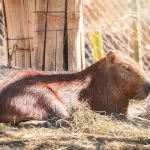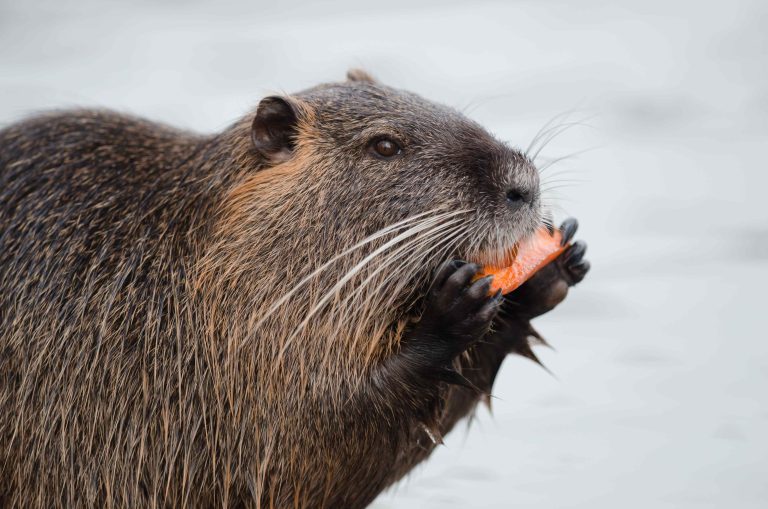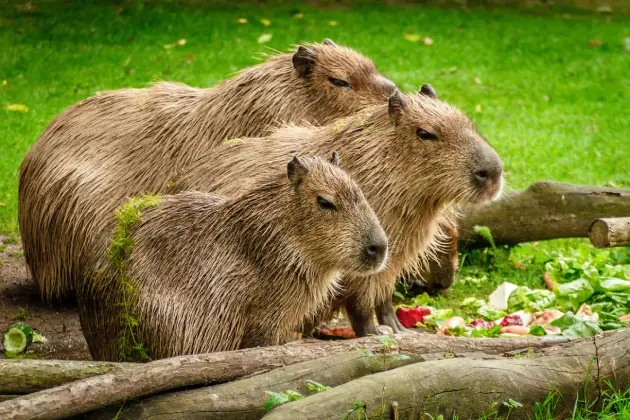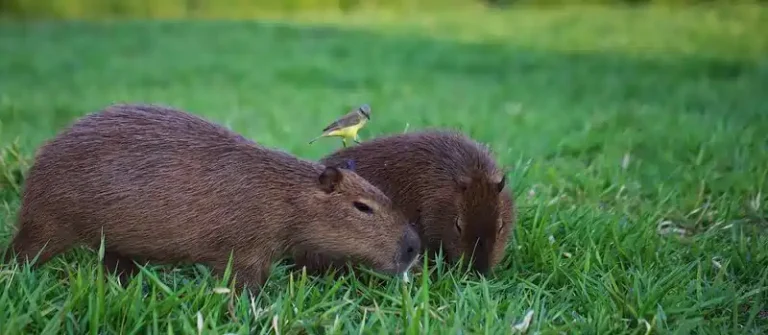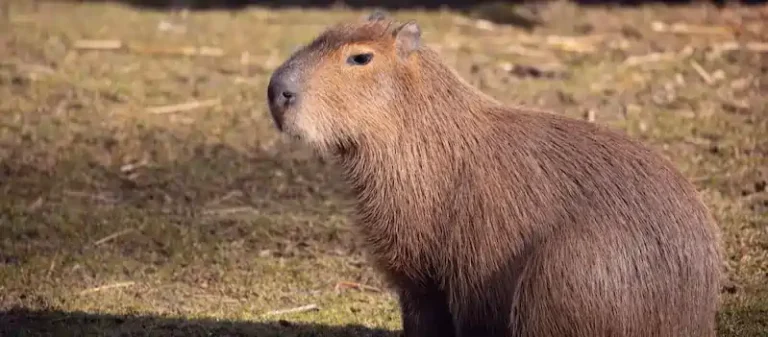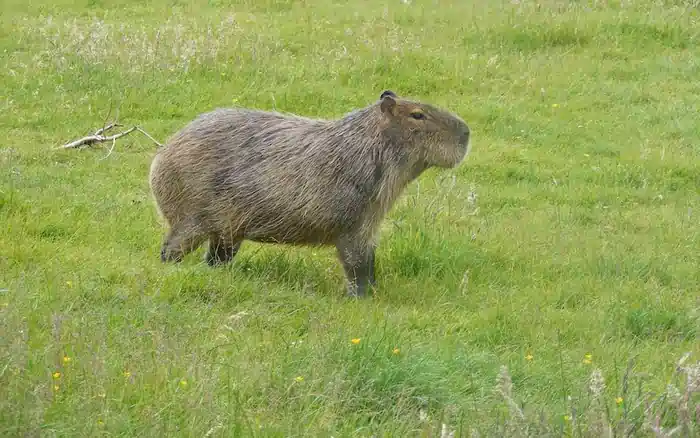
Capybaras have become a popular exotic pet for many animal lovers. Known for their calm demeanor and social nature, these large rodents are often seen lounging in pools or interacting with other animals. However, before you decide to adopt a capybara, it’s important to know the laws surrounding their ownership, especially if you’re living in Tennessee. In this article, we will explore whether you can legally own a capybara in Tennessee, what it takes to care for one, and the responsibilities involved in keeping these unique creatures as pets.
What Is a Capybara?
Capybaras are the largest rodents in the world. They can grow up to four feet long and weigh over 140 pounds. Despite their size, they are incredibly gentle and sociable animals, known for getting along with almost any animal, including other rodents, dogs, and even birds. Capybaras are native to South America, where they live in groups near rivers and wetlands. These semi-aquatic animals love to swim and spend much of their time in the water.
As pets, capybaras are different from the usual household animals like cats and dogs. They require specific care, a lot of space, and, most importantly, companionship. While many people dream of owning one of these gentle giants, it is crucial to understand the legal aspects and their care needs before making such a commitment.
Can You Own a Capybara in Tennessee?
If you’re asking whether it’s legal to own a capybara in Tennessee, the answer is generally yes. Tennessee does not have a specific state law that prohibits owning a capybara as a pet. However, just because the state law doesn’t ban capybaras, it doesn’t mean that they can be kept without restrictions.
Local Regulations and Ordinances
While Tennessee doesn’t have statewide restrictions on owning capybaras, local governments may have their own rules. Some cities or counties may impose bans or require special permits to keep exotic pets. Therefore, before you adopt a capybara, it’s essential to check with your local animal control office or city hall to ensure you comply with all local ordinances.
Some counties may also require you to prove that you can meet the needs of an exotic animal like a capybara. This could include providing adequate space, proper food, and veterinary care. Always do your research to make sure you are following local regulations.
Permits and Licenses
In some cases, owning a capybara in Tennessee may require you to obtain a special permit or license. If you live in a county with stricter rules, you may be asked to apply for a wildlife permit. This ensures that you meet all necessary safety standards and provide proper care for your capybara. Be sure to inquire with your local authorities to determine if you need a permit.
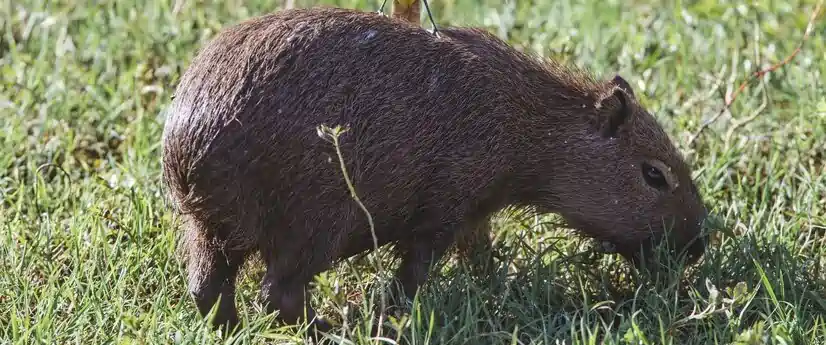
What You Need to Know Before Owning a Capybara
Owning a capybara is not the same as owning a cat or dog. These animals require special care and attention. Before deciding to bring a capybara into your home, it’s important to understand the following:
Space Requirements
Capybaras are large animals that need a significant amount of space to thrive. In the wild, they live in groups near bodies of water, so it’s essential to provide a similar environment at home. You will need a large yard with secure fencing to keep your capybara safe. The area should be large enough for the capybara to roam freely and explore.
Additionally, capybaras are semi-aquatic creatures, which means they need access to water. A pond, large pool, or kiddie pool is a must to give them the opportunity to swim. This is a natural behavior for them, and they rely on water for both exercise and relaxation.
Companionship
Capybaras are social animals that require companionship to remain healthy and happy. In the wild, they live in large groups, and they thrive in social environments. It is highly recommended that you adopt at least two capybaras to ensure they have company. If you choose to have just one, you must be prepared to spend a significant amount of time with it to prevent loneliness and boredom.
At Capybara Pet Info, we emphasize the importance of socialization for capybaras. These animals form strong bonds with their companions, and a lonely capybara can become depressed or develop behavioral issues.
Diet and Health Care
Capybaras are herbivores, and their diet mainly consists of grasses, vegetables, and fruits. It is important to provide them with a balanced diet to ensure they are getting all the nutrients they need. Fresh hay, leafy greens, and fresh vegetables like carrots and lettuce are great options. Fruits such as apples and melons are also popular treats for capybaras.
Regular access to fresh water is crucial, both for drinking and swimming. You must make sure that their water source is clean and regularly changed to prevent any health issues. Like any pet, capybaras require routine veterinary check-ups to monitor their health. You’ll need a vet who specializes in exotic animals, as capybaras have unique needs.
Behavior and Interaction
Capybaras are known for their gentle nature. They are calm, friendly, and can form strong bonds with their owners. However, they do have some unique behaviors. They may exhibit submissive or dominant postures depending on their social environment. Capybaras can also make a range of sounds, from soft whistles to louder barks, especially when they are excited or trying to communicate with others.
It’s important to spend time bonding with your capybara. Regular interaction will ensure that they are comfortable and well-adjusted. They can be quite affectionate and enjoy being pet or scratched, but it’s essential to respect their space and comfort levels.
Benefits of Owning a Capybara
While caring for a capybara can be demanding, the benefits of having one as a pet are numerous. These animals are gentle and social, making them excellent companions for people who have the time and space to care for them.
- Affectionate Companions: Capybaras are known for their affectionate behavior. They often form close bonds with their human owners and enjoy cuddling, petting, and being around others.
- Educational Experience: Having a capybara can be a great educational experience, especially for families with children. It provides an opportunity to teach kids about responsibility, animal care, and respecting wildlife.
- Unique and Entertaining: Capybaras are not your typical household pet. They are unique and can provide hours of entertainment with their playful and gentle nature.
Conclusion
In Tennessee, owning a capybara is generally allowed, but it’s essential to be aware of local regulations and requirements. These animals require significant space, companionship, and specialized care. If you’re willing to meet their needs, capybaras can make wonderful and affectionate pets. Before adopting one, make sure you understand the responsibilities involved, and check with your local authorities to ensure that you comply with all legal requirements.
At Capybara Pet Info, we strive to provide helpful information to guide you in making informed decisions about owning a capybara. If you’re in Tennessee and considering adopting one of these unique creatures, be sure to research local regulations and prepare your home to meet their needs.
FAQs
1. Is it legal to own a capybara in Tennessee?
Yes, it is generally legal to own a capybara in Tennessee. However, you should check with local authorities to ensure there are no specific restrictions in your area.
2. Do I need a permit to own a capybara in Tennessee?
While there is no state law requiring a permit, some counties or cities may have specific regulations that require a permit. Always check with your local authorities.
3. How much space do capybaras need?
Capybaras require a large outdoor area with a secure fence and access to water for swimming. A sizable yard or an enclosure is essential for their well-being.
4. What do capybaras eat?
Capybaras are herbivores and should be fed a diet of hay, leafy greens, fruits, and vegetables. Fresh water should always be available for both drinking and swimming.
5. Can capybaras be kept alone?
Capybaras are social animals, and it is recommended to have at least two. If you keep only one, you must spend a significant amount of time with it to keep it from becoming lonely.




